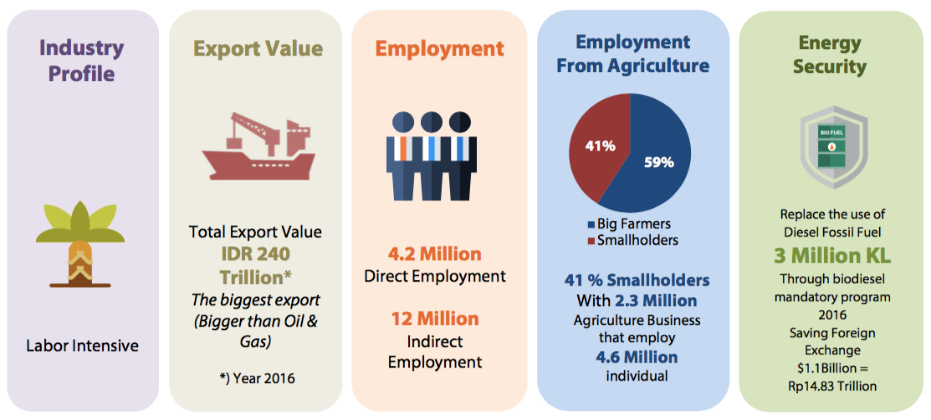Palm Oil
The palm oil industry forms a vital part of the Indonesian economy and makes a significant contribution to gross domestic product, while the commodity itself is one of the country’s biggest sources of foreign exchange revenue. Palm oil is Indonesia’s main export commodity. The export value of palm oil products exceeded Indonesia’s oil and gas exports (valued at USD 15 billion in 2017) and far exceeded the exports of five other Indonesian major plantation commodities, such as rubber, cocoa, coffee, sugarcane and tea. Based on the data released by the Indonesian Palm Oil Association (GAPKI), the export value of Indonesian plam oil in 2017 reach US$22.97 billion, an increase of 26% from 2016 of US$18.1 billion, which was 12.3% of total exports by 2016. The main export destinations are India (34%), European Union (18%), China (14%), Pakistan (10%), and Bangladesh (6%).
Palm oil also has a strategic value to the Government’s efforts in terms of equitable development and poverty alleviation. The palm oil sector was expected to reduce poverty by more than 10 million people, and at least 1.3 million people in rural areas were able to breach the poverty line due to the growth of the palm oil sector. Furthermore, more than 41% of palm oil plantations were managed by smallholders. Palm oil plantations contributed to 5.5 million jobs and supported the lives of 12 million people. In this relation, palm oil has contributed to the achievement of sustainable development goals, especially in relation to poverty alleviation, economic growth, renewable energy development, and food supply.





